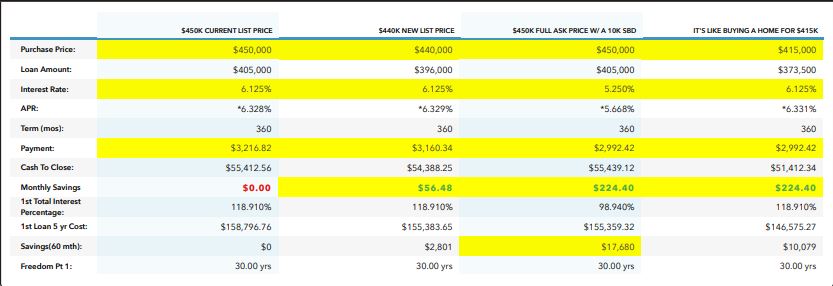 What’s the difference between a discount and an incentive when you’re working on selling new homes? It’s important to understand each offer—what it means to your buyer and your builder.
What’s the difference between a discount and an incentive when you’re working on selling new homes? It’s important to understand each offer—what it means to your buyer and your builder.
Selling new homes has been a challenge this year. Rising interest rates caused many prospective homebuyers to put their plans on hold. A 180° turn from the prior two years when the interest rates hit an all-time low and buyers were eager to pay the listing price, and more. New home sales professionals have had to shift their negotiation strategy to better deal with the new dynamic.
What’s the meaning of a discount?
A discount takes money off the price. Period. It’s a straight-up reduction.
And it’s a price apology. A discount says you overpriced the item. Oops! “Please accept our apology and take this much off the price. Are we good now?”
A seller reduces the price to move inventory, drive traffic into a store, or keep the cash flow going. But here’s what happens in the customer’s head.
When something goes on sale, the buyer knows that (1) there must be wiggle room to handle the lower price; and (2) the seller is eager. The customer is looking for the best deal they can get and isn’t worried at all about the seller’s profit margin. Some retailers have built up their reputation for discounting that they can’t sell their merchandise for the full price.
When buyers are so conditioned to wait for a discount, what happens to your brand?
In new home sales, discounts hit the home’s value. It doesn’t matter where you set the price, only where you sold it. If your buyer purchases a $500,000 home for $450,000, the home is valued at $450,000. And the homes of neighbors who paid a higher price are devalued as well. The discounted price is all the home is really worth. Your entire community takes the hit when you discount the price of a new home.
Remember that discounting is a short-term solution to make a sale. The practice doesn’t protect customers in the long run.
Yes, buyers are price-conscious. Your competitors might be offering discounts. So you’re feeling the pressure. And that’s why you need to understand the difference between discounts and incentives.
The value of incentives
While a discount cuts the price—and your margin—an incentive adds value. These extras can include upgrades, closing cost credits, no loan origination fees, or any number of ways to sweeten the deal without souring property values.
You set the incentive at a dollar amount, so the buyer recognizes that they are getting more than they are paying. Offering incentives instead of discounts increases the home’s value rather than reducing it—a key differentiator you can and should explain to your buyer.
An interest rate buydown has become a common incentive in this housing market. And if you run the numbers, you can show that using this financing option presents a greater benefit to the homebuyer than a discount off the purchase price. An interest rate buydown lowers the monthly payment, saves on interest fees, and maintains the full value of their home. Win-win-win!

How to use incentives in selling new homes
Some salespeople jump right to offering incentives. Don’t be too eager.
You should have a strategy for using incentives in negotiation. Plan ahead so you know what to offer and when. It’s always a good idea to hold something back for the close, in the event your buyer wants one more thing. If you have that incentive in your pocket, you don’t have to cut more deeply into the builder’s profit margin.
Be aware of the options available to you. Remember that your goal is to satisfy your buyer while maintaining profitability for your builder. Understand the actual cost of every incentive so that you can calculate its impact on the bottom line profitability. For example, what does it actually cost the builder if you offer $5,000 in upgrades versus $5,000 in closing cost credit?
Hold on to concessions, offering them only as needed to move the negotiation along without caving in. When you concede too early, you establish a precedent for discounting. Your buyer thinks, “well, THAT was easy” and sees the opportunity to push for more.
I’m finalizing the new edition of my book, “Secrets of New Home Sales Negotiation”. You’ll find more advice in there. Or contact me and let’s talk!


